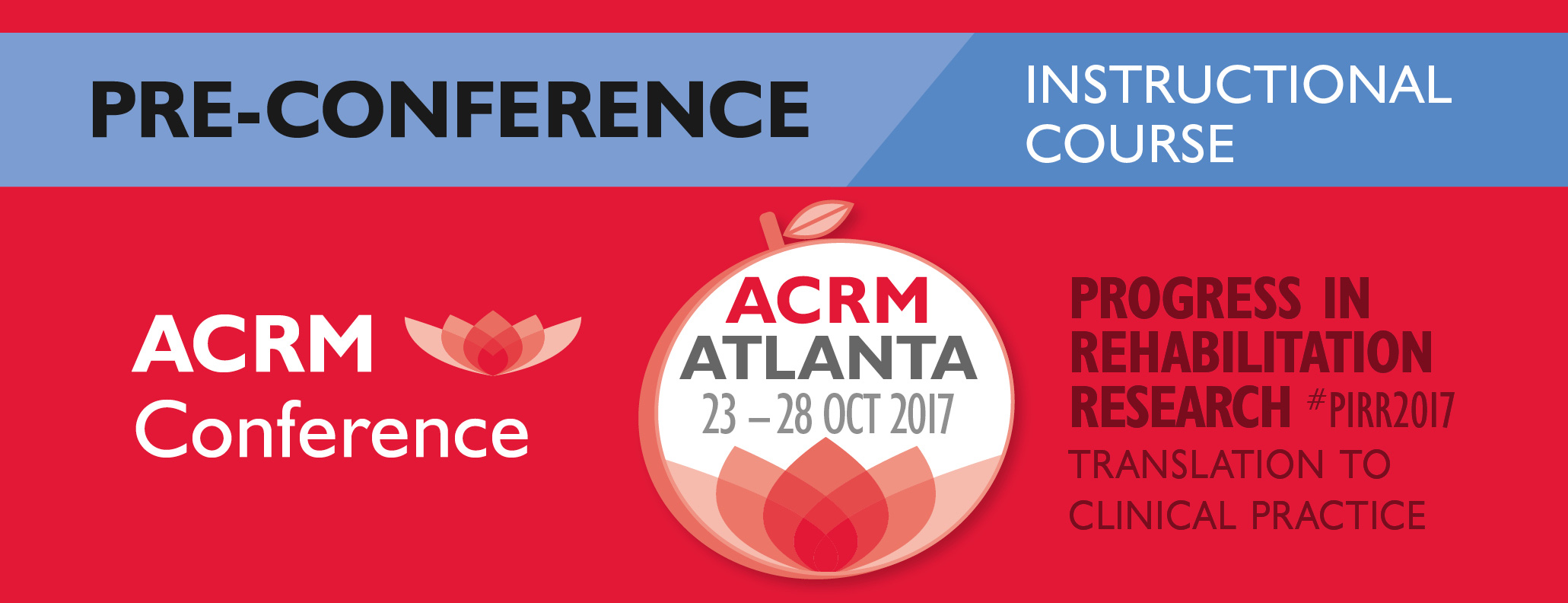WED 25 OCT // 8:30 AM – 12:30 PM
Primary Content Focus: Neurodegenerative disease (e.g. MS, Parkinson’s disease)
Secondary Content Focus: Technology (e.g. robotics, assistive technology, mHealth)
Tertiary Content Focus: Complementary Integrative Rehabilitation Medicine
This international Instructional Course will present and discuss promising, recent and emerging technological advances in wireless and wearable technology being used or studied for health monitoring and research in rehabilitation populations with neurologic injury or neurodegeneration, address which wearable technology parameters ought to be prioritized in a rehabilitation clinical context, report on key ongoing international projects by the presenters, and foundational studies that have already used these technologies across the lifespan, and provide a future perspective on use of innovative and mobile body worn technology in translational neurorehabilitation research and clinical practice applications.
LEARNING OBJECTIVES
- Provide a historical overview on the use of mobile health technology using wireless and body worn sensors in populations with neurologic and neurodegenerative diseases
- Identify key issues related to maintaining security and confidentiality of highly sensitive physiologic data collected via mobile health technology and data used in the electronic medical record
- Discuss current strengths and weaknesses of inertial sensing technology and its suitability for clinical and personal use beyond activity monitoring
- Illustrate the integration and promotion of ambulatory assessment, experience sampling methods and patient/provider feedback in e-health and clinical tele-rehabilitation settings
- Describe the effects of neurological disease (Multiple Sclerosis, stroke, Parkinson’s disease, cerebral palsy) on daily mobility in terms of gait and gait related activities
PRESENTERS
Mark Hirsch, PhD
Carolinas Medical Center, Carolinas HealthCare System
Mark Newman, PhD, MPH
Carolinas HealthCare System
Jeffrey Hebert, PT, PhD, MSCS
University of Colorado — Anschutz Medical Campus School of Medicine
Erwin van Wegen, PhD
Amsterdam University
Richard Peindl, PhD
Carolinas Medical Center
James Carollo, PhD, PE
Department of Physical Medicine and Rehabilitation, University of Colorado – Anschutz Medical Campus School of Medicine
Patricia Heyn, PhD, FGSA, FACRM
University of Colorado – Anschutz Medical Campus School of Medicine
BIOS
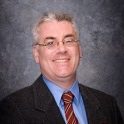
Mark Hirsch PhD is a Senior Scientist, Department of Physical Medicine and Rehabilitation, Director, Resident Research Education (PM&R) and PM&R lab. He received his PhD at Florida State University at age 29 with a thesis titled “Activity-dependent enhancement of balance in Parkinson’s disease”. He received post-doctoral training on an NIH T32 fellowship in neurorehabilitation research at Johns Hopkins University (96-99), Department of Physical Medicine and Rehabilitation (B. J. de Lateur, MD, mentor) and a neurology fellowship (2000-2001) at Dusseldorf University (H. Hefter, MD, PhD, mentor). He has been at Carolinas Rehabilitation since 2004 and together with Dr. Sanjay Iyer, he developed the Parkinson Network which in 2011 received funding from the Park Foundation and became known as RENEW Carolinas Parkinson Initiative. His current research interests are gait and balance, mostly in Parkinson’s disease and patient/provider collaboration. He is the past Chair of the Board of Directors of the Parkinson Association of the Carolinas and serves on many committees and boards internationally including the International Association of Parkinsonism and Related Disorders. Hirsch, a retired competitive formation team ballroom dancer, works with doctors and therapists who want to give patients a more active role in their health care and he promotes greater cooperation in the health care system. He envisions a system he calls ‘participatory healthcare’.
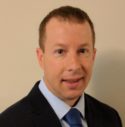
Mark Newman is currently an Assistant Professor and Research Scientist in the Department of Physical Medicine and Rehabilitation at Carolinas Medical Center. His research experience has focused, in large part, to the role physical function plays in the aging process. Throughout his career he has worked on federally funded research investigations with various physical function measures as the primary outcome. Dr. Newman has experience administering physical function tests to both healthy and physically disabled populations. Additionally, he has experience in the design and implementation of physical activity interventions as well as experience analyzing and presenting data from these trials. As a Carolinas HealthCare System Data Steward, he has completed advanced training on database construction, data management, and data quality principles and application using the Research Electronic Data Capture (REDCap) database platform.

Jeffrey Hebert has been an integral part of the University of Colorado Hospital – Multiple Sclerosis Center and the Rocky Mountain Multiple Sclerosis Center at the Anschutz Medical Campus for over 13 years, providing specialized clinical care for patients with multiple sclerosis (MS). His clinical practice provides insight into the current problems experienced by patients with MS with a wide range of disability levels. In clinic, Jeff applies current, evidence-based practice, providing further practical knowledge of the effectiveness of treatment approaches proposed in the literature. In the classroom, Jeff is the director of the Scientific Inquiry (evidence-based practice) courses for the Physical Therapy Program. He is an Assistant Professor for the Department of Physical Medicine and Rehabilitation, Physical Therapy Program and the Department of Neurology at the University of Colorado Anschutz Medical Campus. His research interests include the investigation into the causes, management and treatment of fatigue and mobility limitations in patients with MS. Jeff researches the effectiveness of treatments for the most common signs and symptoms in the MS population. Jeff uses rehabilitation-based treatment strategies such as vestibular rehabilitation, aerobic and strength training for the treatment of impairments in self-reported fatigue, upright postural control, physical activity and muscle function.
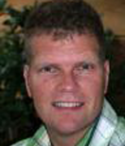
Dr. Erwin van Wegen is working as an associate professor in neurorehabilitation at the department of Physical Therapy/Rehabilitation Medicine at the VU University Medical Center (VUmc) in Amsterdam, The Netherlands. Educated as a movement scientist in motor control and rehabilitation, Dr. van Wegen is principal/associate investigator on several grants in the field of neurorehabilitation (o.a. ZonMw, STW, Hersenstichting, Stichting Parkinson Fonds, Parkinson Society, EU) and coordinator of several teaching courses on movement disorders and rehabilitation at the MOVE research institute Amsterdam and the faculty of Medicine at the VUmc. His subjects of interest are the coordination of locomotion and balance, as well as motor control, (neuro) rehabilitation and neuroplasticity in movement disorders, specifically in Parkinson’s Disease (PD), stroke, and MS. At present Dr. van Wegen is senior member of the Neurorehabilitation Unit at VUmc and local VUmc coordinator and steering group member in the 4DEEG project (an ERC funded grant awarded to Prof. dr. G. Kwakkel from the VUmc and Prof. dr. Frans van der Helm from the Technical University of Delft), which is focused on investigating the longitudinal relationship between stroke recovery and brain plasticity on early upper extremity rehabilitation in stroke patients. Dr. van Wegen is also a Hersenstichting Fellow, member of several editorial boards of peer-reviewed journals, member of scientific research committee of the MOVE translational research institute, deputy-treasurer of the Dutch Society of Neurorehabilitation, and permanent member of the scientific organizing committee of the biannual Neurorehabilitation and Neural Repair conference.
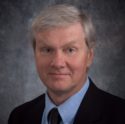
Dr. Richard Peindl has over 35 years of mechanical engineering experience working in both industrial and academic settings in the areas of manufacturing, product development, test engineering and research. Most of his efforts aimed at answering surgical questions with near-term clinical applications involve his previous training in experimental mechanics and biomechanics. The majority of these projects involve the evaluation of fracture fixation devices, joint replacement devices, joint reconstruction techniques or soft tissue attachment devices and/or techniques. These studies necessitate the use of a wide array of experimental instrumentation and techniques aimed at measuring stresses, strains, loads and deformations in implants, external fixation devices, surgical instruments and in hard and soft tissues. Studies are conducted using synthetic specimens, cadaveric specimens or animal models and may involve evaluation of initial structural stability or long-term performance of soft tissue-bone-implant constructs. Dr. Peindl’s background includes experience in photostress analysis (application of photoelastic coatings and stress freezing in photoelastic models), strain gage and brittle coatings analyses and joint motion analyses (kinematic and kinetics) using a variety of motion capture systems. Over the last 10 years, Dr. Peindl’s laboratory has also been involved in basic science research involving the response of osteoblasts to simulated implant surfaces with varying surface topographies and the development of a new type of osmotic gradient bioreactor system for the growth of articular cartilage. These efforts have resulted in two awarded patents in the area of tissue culture and one patent pending with respect to the bioreactor system. Emerging areas of interest include research in computer-assisted and robotic-assisted surgery and utilization of joint motion analysis and dynamic posturography for quantitative evaluation of orthopedic-related disability and surgical outcomes assessment.
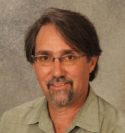
Dr. James Carollo is the Director of the Center for Gait and Movement Analysis (CGMA) and the Musculoskeletal Research Center (MRC), both at The Children’s Hospital in Denver, and currently holds faculty appointments at the University of Colorado Denver (UC Denver), Colorado School of Mines (CSM) and University of Denver. He also periodically supervises graduate students at UC Boulder and UC Colorado Springs. Opened in July, 1999, CGMA is the first and only clinical movement analysis laboratory in Colorado, and the only program at Children’s Hospital to evaluate both children and adults. The Center’s mission is to comprehensively analyze movement disorders associated with neuromuscular and orthopedic conditions, using advanced measurement tools and a unique multidisciplinary approach. The goal is to identify critical gait abnormalities and recommend comprehensive treatment to restore functional ambulation in any individual with less than optimal walking performance. Dr. Carollo was recruited to design this state-of-the-art facility after creating separate centers at Texas Scottish Rite Hospital for Children and the University of Texas Southwestern Medical Center, both in Dallas, Texas Created in January, 2006, the MRC is a multidisciplinary research group established to promote and conduct advanced clinical outcomes research in the field of Pediatric Orthopaedics. It draws upon the clinical excellence of The Children’s Hospital Orthopaedic Surgery and Rehabilitation Medicine departments and the analytical expertise of clinical scientists and biomedical engineers, to create a clinical research infrastructure that can support research in spinal deformity, cerebral palsy, and other musculoskeletal disorders in children.

Dr. Patricia Heyn has distinctive knowledge on how to synthesize and evaluate the quality of the evidence to provide guidance on current physical medicine issues to improve research and methodology, and in conducting health services and implementation research to promote the best evidence-based practices in rehabilitation medicine. Her work on the effects of exercise training for individuals with dementia is highly cited and well-recognized in the rehabilitation field. Dr. Heyn has several ACRM leadership and mentorship roles. She is also an important faculty and program member for the NIH/NIDKK Network of Minority Health Research Investigators (NMRI) and the Gerontological Society of America. Her investigations include the associations between exercise, mobility, metabolic syndrome, cardiovascular risk factors, and cognitive function. She has been involved in several international academic programs and her research was featured in La Naci????Argentina’s leading newspaper and is frequently cited in various media such as HealingWell.com, WIKIBOOKS, ABC 7 News and the Alzheimer’s Association.
ACRM Annual Conference, Progress in Rehabilitation Research (PIRR#2017)
CORE: 25 – 28 OCT 2018 // HILTON ATLANTA, USA // PRE-CONFERENCE 23 – 25 OCT
REGISTER ONLINE HERE or Register by Phone: +1.703.435.5335
 |
 |
 |
 |


